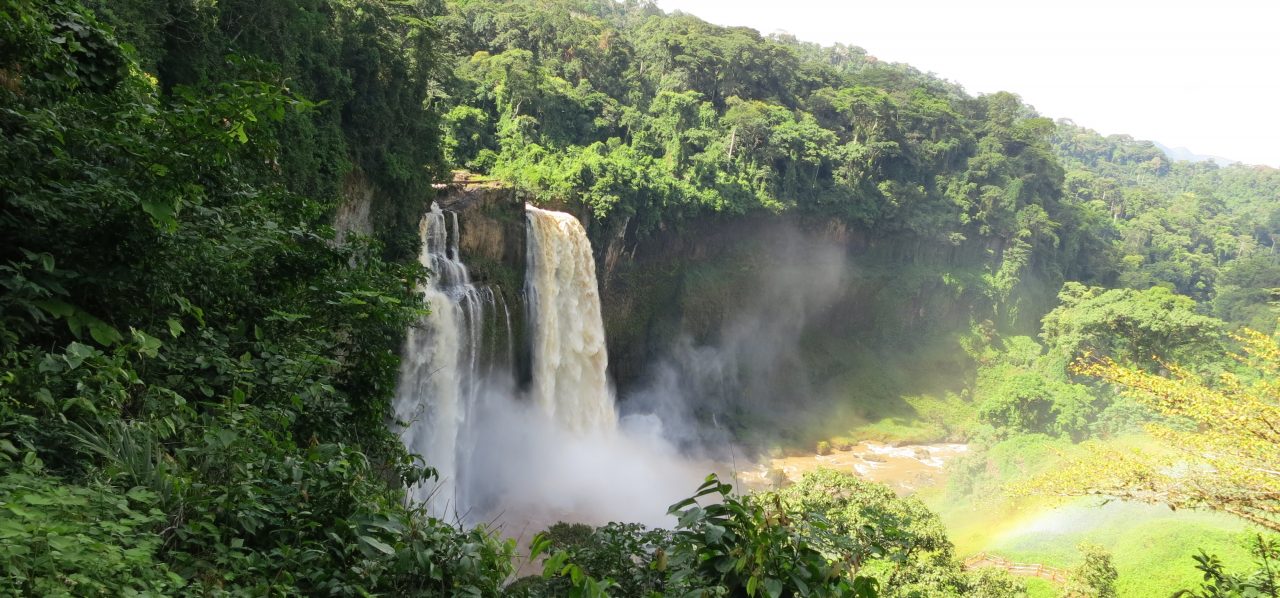
I always wondered where the name Brazzaville came from. At first glance, it would appear to mean “the city of Brazza (la ville de Brazza).” Is this a good guess? and if so, who was Brazza for his name to be given to the capital of an African country. Fortunately or unfortunately, during European colonization, many African cities, and cities throughout the world, were renamed after the first European explorer passing by or after some European ruler. Examples are countless: Leopoldville (modern-day Kinshasa), Port Louis (capital of Mauritius, named after Louis XV), Northern and Southern Rhodesia (Zambia and Zimbabwe resp. – named after Cecil Rhodes), etc. Other cities have seen their names ‘europeanized’ such as Canton (Guangzhou, in China), Bombay (Mumbai, in India), and many others.

Brazzaville is the capital and largest city of the Republic of Congo. It is located on the shores of the Congo River. It is the only capital in the world facing another one, Kinshasa, the capital of the Democratic Republic of Congo: Brazzaville and Kinshasa are separated only by the Congo river. The Pool region and surroundings of Brazzaville had been an African crossroad for centuries. In the Lari language, the regions of Mfoa and Mpila were known under the name Mavula, or “the place to get rich.” Laris people still refer to Brazzaville that way; however the name Mavula is anachronic since in 1880, the region’s inhabitants were Bateke. The site of the future capital was known as Nkuna, and was a Batéké village. Brazzaville was founded on 10 September 1880 by an Italo-French explorer, Pierre Savorgnan de Brazza, after whom the city was named, Brazza-ville or the city of Brazza. The local leader, Makoko of the Téké, signed a treaty of protection with de Brazza which subjugated his lands to the French Empire (he was probably fooled by the French, as was common practice with the colonizers). The city was built four years later in order to become a competitor with Léopoldville (now Kinshasa) which was built by the Belgians on the other side of the river. The site was occupied from October 1880 until May 1882 by a small squad of troops led by Senegalese Sergeant Malamine Camara, who prevented the land from falling into Belgian hands.

It was actually Malamine Camara who created links with the local populations, and made them sign with the French. Malamine was very loyal, and when Savorgnan left for France for a few years, Malamine stayed behind, and convinced the local populations through his good manners to side with the French. It is so sad that today, history mostly remembers Savorgnan de Brazza, and that even that capital is named after him, when it was the Black Senegalese soldier who fought for the French, led the troops, and convinced the locals.

The French officially established control over the area by the Berlin Conference of 1884. The city became the capital first of the French Congo, and then of French Equatorial Africa, a federation of states which encompassed Gabon, the Central African Republic and Chad. In 1924, the Congo-Océan railway was brought into service which linked Brazzaville with the port of Pointe-Noire. During World War II Brazzaville, and the rest of French Equatorial Africa, remained beyond the control of Vichy France. In 1944, Brazzaville hosted a meeting of the Free French forces and representatives of France’s African colonies. The resulting Brazzaville Declaration was intended to redefine the relationship between France and its African colonies after the war.
Today, Brazzaville is a bustling city of more that 1.5 million inhabitants. Affectionately called Brazza, it is the heart of the Republic of Congo. To learn more about Savorgnan de Brazza himself, check out Brazza.culture.fr. Enjoy, Brazza!


Pingback: CAN 2015: Who will win the African Cup of Nations? | African Heritage
That was a good lesson on the ROC’s capital. One story I recently wrote in the Revezia series has a character who’s from an analog of that country which is addressed as Conmakoko as a fusion of Congo and Makoko of the Teke instead of using Brazza when I edited the story and compiled it.
LikeLike
Very good… we have to value our own. I like how you created the name from Congo and Makoko
LikeLiked by 1 person
Yes, and I’m agreeing with that more and more. Thank you. Here’s the book who features that character. You can get it for free if you’d like. It’s a cell phone novel, so it’s a short read, but it has a complete story: https://books.noisetrade.com/cmbbell/revezia-sika-uvira-chronicle
LikeLike
Ok. thanks for the link. I will check it out.
LikeLiked by 1 person
No problem and thank you. I hope you enjoy it and other parts of the Revezia series.
LikeLike